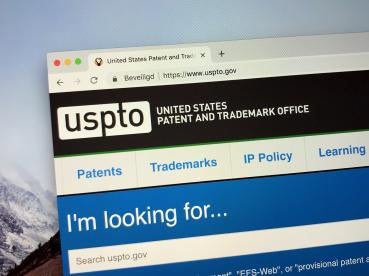The United States Patent and Trademark Office (“USPTO”) offers reductions in official fees to patent applicants that qualify for “small entity” status, which can be advantageous for many companies. However, various factors can render a company ineligible for these reduced filing fees. Falsely claiming small or micro entity status may lead to severe consequences, including patent invalidation. This underscores the critical significance of precise entity status determination in the patent application process. Venture capital funding can in some instances lead to a need to re-evaluate a company's eligibility for small entity status and the reduced filing fees that come with it.
Governing Regulations: Who qualifies as a small entity?
13 CFR § 121.802 - What size standards are applicable to reduced patent fees programs?
A concern eligible for reduced patent fees is one:
(a) Whose number of employees, including affiliates, does not exceed 500 persons; and
(b) Which has not assigned, granted, conveyed, or licensed (and is under no obligation to do so) any rights in the invention to any person who made it and could not be classified as an independent inventor, or to any concern which would not qualify as a non-profit organization or a small business concern under this section.
And next, who qualifies as an “affiliate”?
13 CFR § 121.103 - How does SBA determine affiliation?
(a) General Principles of Affiliation.
(1) Concerns and entities are affiliates of each other when one controls or has the power to control the other, or a third party or parties controls or has the power to control both. It does not matter whether control is exercised, so long as the power to control exists.
…
(5) In determining whether affiliation exists, SBA will consider the totality of the circumstances, and may find affiliation even though no single factor is sufficient to constitute affiliation.
As per the regulations, determining affiliation and control is a totality of the circumstance inquiry, taking into account factors like ownership, management, and contractual obligations of the company. Specific avenues of control are detailed in 13 CFR § 121.103 (c) – (h), which encompass aspects such as significant present or future stock ownership, common management between the entity and the affiliate, and participation in joint ventures or development agreements, etc.
Venture capital financing can frequently have a significant impact on the control of a company. This influence can manifest in various ways, including the allocation of outstanding stocks and governance changes. For instance, a venture capital (“VC”) firm might gain one or more seats on the company's board in connection with venture capital financing. If a VC firm has sufficient control to be considered as an affiliate, its employees should therefore also be counted toward the 500-employee cap in addition to the company’s own employees. Furthermore, VC firms may have control over other companies in their portfolio, leading these companies to be classified as affiliates, and the employees of those additional portfolio companies should likewise also be added when evaluating whether a company is above or below the 500-employee threshold to qualify for small entity status.
In the Size Appeal of Novalar Pharmaceuticals, Inc., SBA No. SIZ-4977 (2008), a VC firm was deemed to possess sufficient control to qualify as an affiliate, not only of Novalar but also of 34 other companies within the VC firm's portfolio. This cumulative total of employees, spanning Novalar, the VC firm itself, and the 34 portfolio companies, exceeded the 500-employee threshold specified by SBA guidelines. Consequently, Novalar did not qualify as a small entity under these guidelines.
Notably, the VC firm was a minority shareholder of Novalar and 32 of the portfolio companies, and the VC firm was not even the largest minority shareholder in 22 of the portfolio companies. The VC firm had only one seat on Novalar’s board and never had board control over any of the portfolio companies. This example from the Novalar case underscores that the threshold for a VC firm to be categorized as an affiliate can be relatively low, and the number of employees ascribed to a company for the purpose of designating the entity status can rapidly increase.
Given this low threshold for affiliation based on stock ownership, it is often considered best practice to opt for large entity status when filing with the USPTO. Although reduced official fees can be enticing, they necessitate ongoing re-evaluation and careful management of entity status. The risks resulting from such an approach, as well the added costs of properly managing this risk, can easily outweigh any short term cost savings from claiming small entity status to reduce official fees paid to the USPTO.






 i
i


